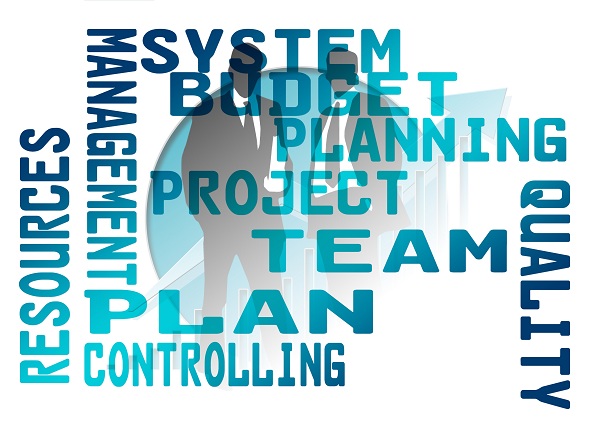Presenting the Yearly Budget to Investors
Better with or without Taxes?
By Marwan Emile Faddoul and Katherine lange Johnson
 A budget can serve as a road map for business' success. Plotting out expenses helps to allocate funds, cut costs, forecast future opportunities, and predict profitability. Budgeting is a useful tool for decision-making and gauging current and upcoming performances. Investors use budgets in a number of ways to judge a company - from assessing internal finances, to evaluating weaknesses, and to knowing exactly where to inject their financial support in their role as an investor. As a businessperson seeking funding, presenting an annual budget to potential investors is a critical step towards achieving the company's goals.
A budget can serve as a road map for business' success. Plotting out expenses helps to allocate funds, cut costs, forecast future opportunities, and predict profitability. Budgeting is a useful tool for decision-making and gauging current and upcoming performances. Investors use budgets in a number of ways to judge a company - from assessing internal finances, to evaluating weaknesses, and to knowing exactly where to inject their financial support in their role as an investor. As a businessperson seeking funding, presenting an annual budget to potential investors is a critical step towards achieving the company's goals.
An IT executive came into the NFG offices recently with a problem not unique to start-ups like his-he had a great idea, and had begun to build the business structure around him, but needed capital badly.
IT Executive: "I've been working out my business plan for months. I'm about to put a deposit down on office space, and I've begun the hiring process for support staff and developers, but I'm strapped for cash! I've got to pay my rent, pay my employees, pay for raw materials... pay everyone!"
Marwan: "Sounds like you've built a good foundation and have taken the first steps. How much do you need? Let me just open my magic wallet..."
IT Executive: "After our last meeting, I took your advice and contacted some venture capitalists, and we've set up meetings for early next week, but I don't know what to ask for. I certainly don't want to ask for too little, and I'm also afraid of asking for too much."
Marwan: "Let me ask you this. What is your goal?"
IT Executive: "I'd like to raise enough capital to operate for the next six months to a year, which I think will take me to the point of sales, at which point I can start making my own money."
Marwan: "And how does your budget look? With a goal like yours, your budget can tell you how much you'll need for operating expenses and other constant expenditures. I see you've included rent, salary, raw materials-all key aspects to getting your business up and operating. But what about taxes? I don't see those listed here on your budget spreadsheet."
IT Executive: "Taxes? I hadn't thought about including taxes. In fact, I've been so busy with hiring and other key planning decisions, I haven't thought at all about taxes yet!"

Marwan: "You know the old saying, nothing can be said to be certain, except death and taxes? There are certain taxes you will pay every year, no matter your operating expenses, and those are crucial to include in your budget, because they will be there as long as your company exists. You say you're about to put a deposit down on office space? How much are the property taxes? And how many employees do you intend to bring aboard? That will help determine your income tax amount. You'll have recurring corporate taxes, and you'll need to include the estimated sales tax on any equipment you buy to get your production up and running..."
IT Executive: "Okay, I see why I'd include these taxes in my budget â all those recurring expenses in the form of taxes that I can plan to pay and estimate into my overall budget. So, let's see - after I start production, and I start making profit, I'll have to pay a capital gains tax, and..."
Marwan: "Now you've gone one step too far. In the budget you present to investors, you need to tell them the money you need to get to the production stage so you can start making money on your own. That's your stated goal. Including these figures will provide a better financial picture to investors so you can arrive at the perfect amount of funding for your operating expenses, kind of like a Goldilocks situation.
"Asking for too little may leave you shy of your operations goal. As I'm sure you've already learned, opening a business costs a lot more than you imagined, and the money always seems to dry up quicker than you had hoped. Additionally, surprise expenses always seem to pop up when you least expect them.

"Anticipating the unknown usually leads people to seek as much capital as they can acquire, but there are some benefits to raising as little capital as necessary. This is a concept known as running lean, and can help you exchange less equity for capital. Running lean may also encourage you to work harder under pressure, though you'll always be aware of the risk of prematurely running out of capital.
"Asking for more than you need may provide a certain amount of comfort, but you'll have to exchange an equal proportion of your equity in return for the capital invested, and ultimately you'll owe your investors more than you may be comfortable with in the long term. Determining the optimal level of capital needed to reach your specific goal is what you need to do, and to find that sweet spot, you need to draft an accurate budget.
"When you meet with your potential investors, show them a comprehensive budget that includes what you'll need to reach your goal. You said you want to raise enough capital to operate for the next six months to a year, so you are correct to include rent, salary, raw materials expenses, and your annual and fixed taxes. These elements will provide a more accurate picture of your overall financial situation to investors. Including taxes like capital gains tax is too far down the line to include in your investor proposal. Because you haven't made any money yet, you can hold off on including taxes from future earnings. You won't have a clear idea of those figures until you get to production, but you should already have a basic idea about recurring and fixed taxes.
"You want to include the taxes that are central to the operations and immediate growth of your company, as well as annual and recurring taxes that are essential to the existence of your company. But there are certain taxes that should be excluded from your budget. Taxes that will arise from future earnings and their related expenses should not be presented to potential investors (though it is always a good idea to plan ahead!).
"Presenting a comprehensive budget than includes all financial elements necessary to operations and immediate growth will also help the investor make the right decision to invest in you. When they performed their due diligence, they would have seen you had left out taxes, and it could have turned them away from investing in your company. I'm glad you stopped by to see me."
IT Executive: "I'm glad I came by, too! As busy business people, we are prone to forgetting small details as we make big plans for the future of our companies. I've been occupied with so many aspects of getting my startup off the ground that I nearly missed a crucial element to my budget proposal, which could have not only caused me to underestimate how much capital I need to raise, but could have also turned off all the venture capitalists I plan to meet with. I really am glad I came in here before I met with those investors!"
--END--